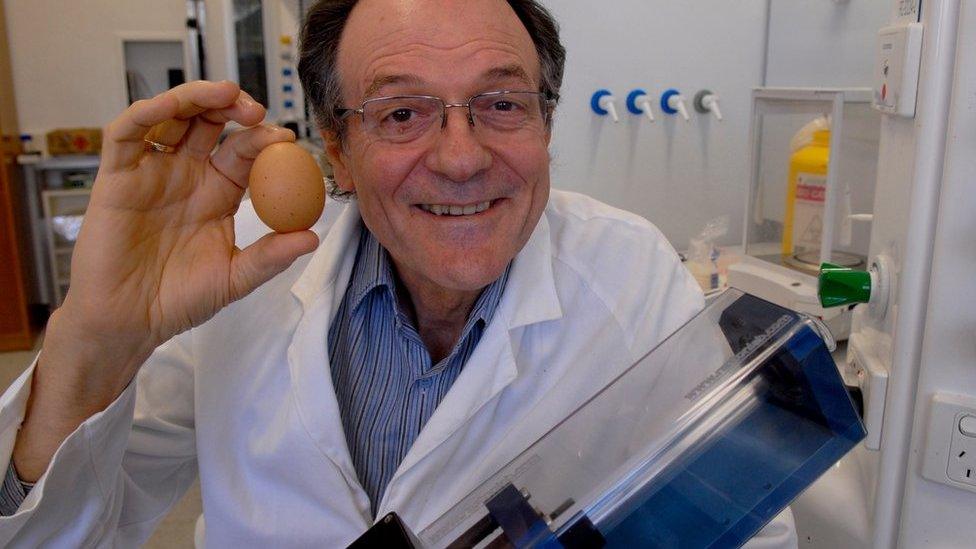Why are these stickers appearing on free range eggs?
- Published
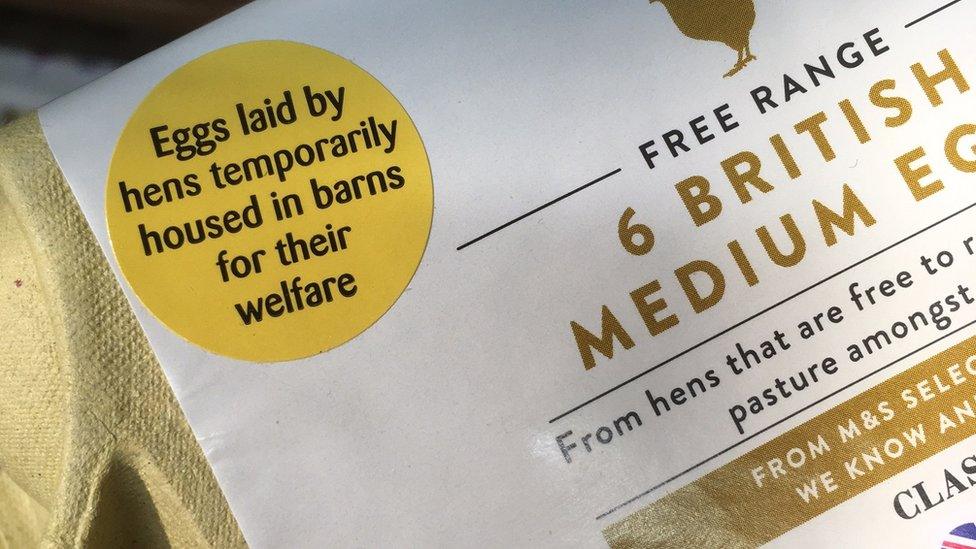
Stickers have started to appear on boxes of free range eggs announcing that the hens that laid the eggs have been kept, temporarily, in barns "for their welfare". So what are the rules around the free range status - and what do recent changes mean for farmers and consumers?
There are four different types of eggs sold in the UK, all of which are stamped on the carton for you to see: organic, free range, barn-reared, and caged.
To be classed as a free range egg, the hen laying it must have had unlimited daytime access to runs - fenced areas - with vegetation and at least four square metres of outside space per bird.
The hens are then kept in barns with bedding and perches overnight, with nine birds allowed per square metre.
But they are now spending all day indoors?
Yes.
Towards the end of 2016, there was an outbreak of avian flu - or bird flu - across Europe.
Farmers hoped it would never make it to British shores, but in December the H5N8 strain of the disease was found in some wild and farmed birds in the UK.
As a result, on 6 December the government's Department for Environment, Food and Rural Affairs (Defra) issued a prevention zone order in England, making farmers keep their birds inside to stop the spread of the disease. Similar restrictions were introduced in Scotland and Wales.
After the flocks were taken indoors, companies selling the eggs started to put stickers on their products, or signs in shops, to let consumers know animals were being "temporarily housed" during the outbreak.
Can the eggs still be called free range?
However, this is only a temporary solution. Rules from the European Commission (EC) state that after 12 weeks of hens being housed indoors, their eggs cannot be marketed as "free range" and instead would become "barn-reared".
The current Defra order runs until 28 February, after which the majority of farmers are expected to be allowed to let their hens back out.
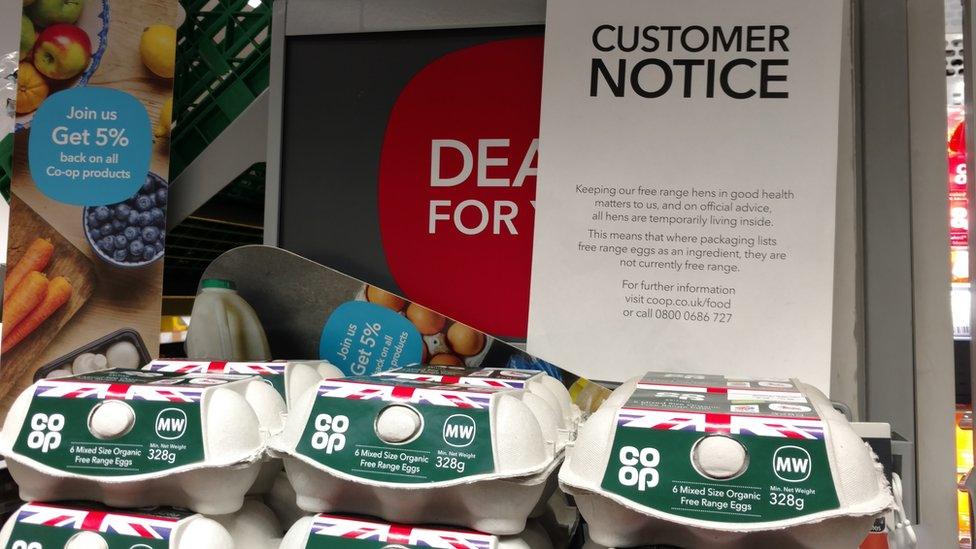
Some shops, including Co-op, are putting up signs to tell customers about the rules
But farmers forced to continue following the order after this date will no longer be able to call their eggs "free range".
For now, the stickers and signs are within regulations, but the situation has been described as "fluid" by retailers and it is uncertain how long stickers can be used after the end of the month, instead of full package redesigns.
Will they taste different?
There is much debate in the industry as to whether free range eggs taste any different to those from caged or barn-reared hens.
While high-profile chefs like Jamie Oliver and Hugh Fearnley-Whittingstall sing the praises of letting hens loose around the farm, taste inevitably remains subjective.
But there are no health concerns for consumers during the avian flu outbreak, according to the government and producers.
Will the eggs cost the same?
Retailers have told the BBC that the prices - up to twice as much as caged hens' eggs - will remain static for now.
A spokesman for Sainsbury's said the cost to their suppliers would not change, so prices would stay put to support them - although the supermarket expects few of its suppliers to continue to be affected after the end of the month.
But farmers know they cannot continue to charge a premium forever if their hens stay indoors. The National Farmers Union (NFU) has warned of a potentially "huge impact" on the free range sector and is "very concerned" for its members.
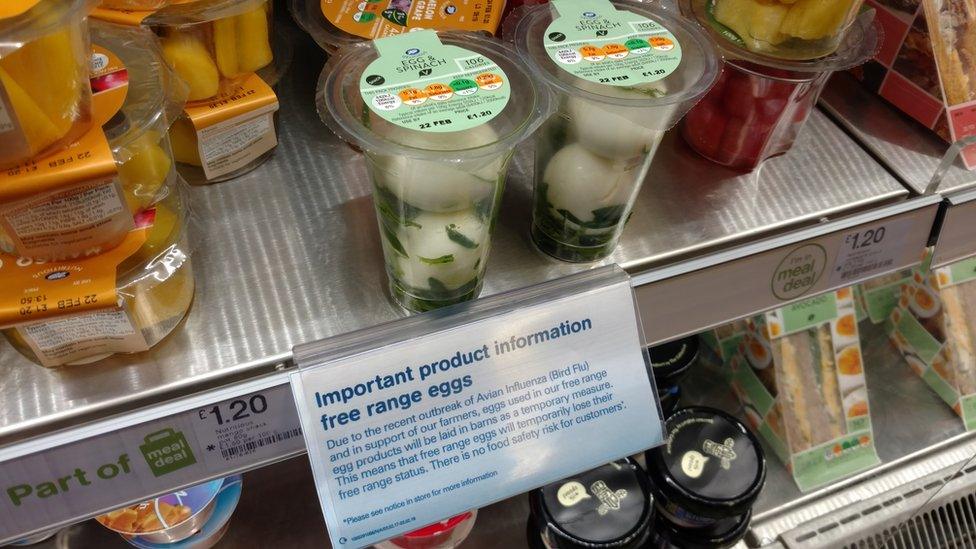
Places that sell products containing eggs, including Boots, are also putting up signs
It is lobbying the EU decision makers to extend the 12-week rule. But, according to the British Egg Industry Council, its demands have had no impact so far.
According to the Daily Mail, external, farmers in Holland are already in the process of re-labelling free range eggs and poultry after losing an appeal against the EU to extend the 12-week rule.
So when can farmers let hens be free range again?
Three quarters of farms will be allowed to let free range birds back outside by the end of February, according to Defra. However, farmers will have to continue with extra bio-security measures, including fencing off ponds.
Bird flu is also transmitted via the environment, for example in wild bird droppings, making strict bio-security vital, says chief veterinary officer Nigel Gibbens.
Precautions include:
putting up netting
keeping food and water inside, and
disinfecting footwear and equipment after contact with birds
And concern about avian flu persists in high-risk areas. The remaining quarter of farms can expect the emergency rules to stay in place - thereby affecting some producers' claims to free range status.
Some smaller farms will, however, be able to allow hens outside under netting, meaning their eggs can be classed as free range.
- Published1 February 2017
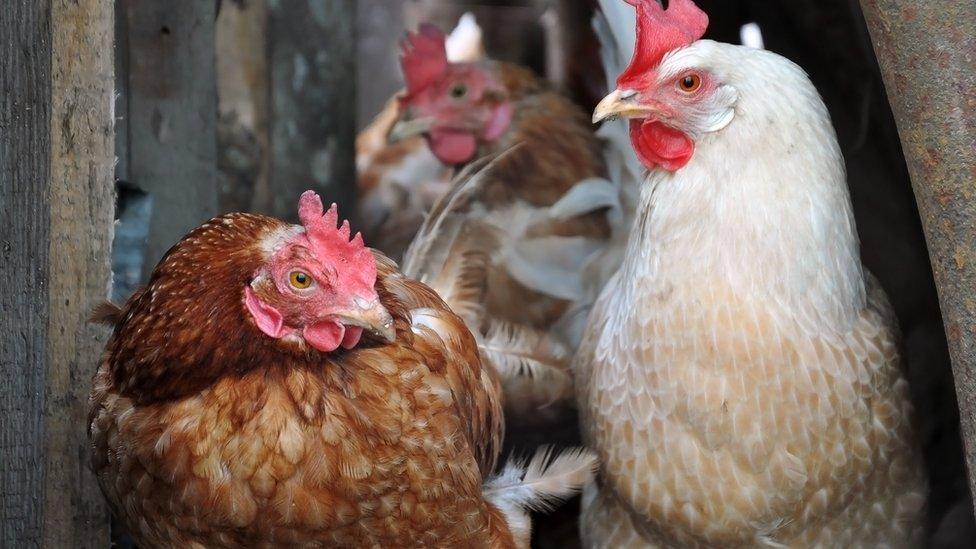
- Published25 July 2016
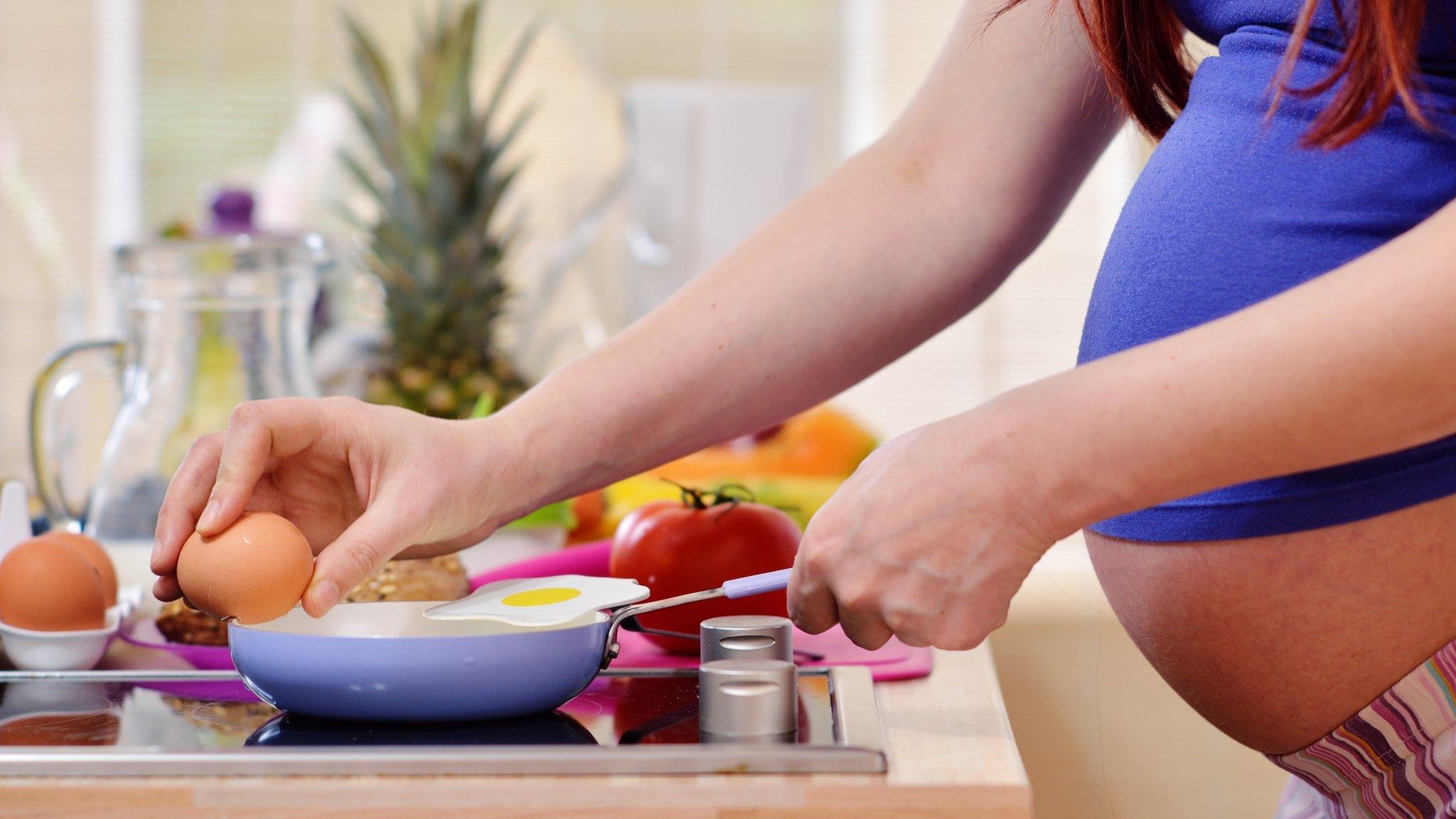
- Published21 March 2016
